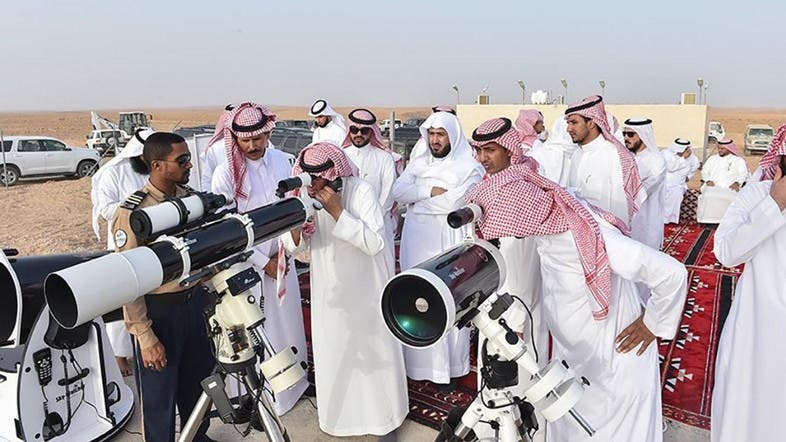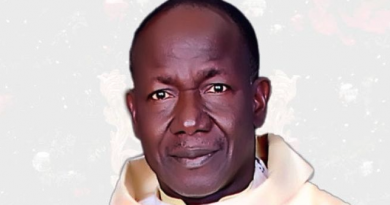The Thorough Procedure of Moonsighting in Saudi Arabia
by Yusuf Badat
In a meeting convened in Toronto, Canada on 24th of May, 2017, a few religious scholars along with some leaders of Islamic organizations came together, specifically to hear Shaykh Dr. Yacoub AlDehlawī.
The Shaykh was precisely invited from Saudi Arabia to present to the audience, the entire procedure of how the moonsighting declarations are formally conducted in Saudi Arabia.
The Shaykh was born and raised in Saudi Arabia and has been in the field of teaching at a university level, in the Prophet’s city (upon whom be peace and blessings). Being a professor, teaching Islamic law and also one who trains judges at the Madīnah university, Dr. AlDehlawī has close contact to the courts and legislators in Saudi Arabia.
Dr. AlDehlawī took an entire week to meet and contact officials connected with the moon sighting committees of Saudi Arabia to fully understand the procedures, so he could be confident and accurate in this presentation.
The Shaykh began his presentation emphasising the concept of unity in Islam and togetherness, especially in subsidiary matters. He then explained the operations of the Islamic courts in reference to crescent sightings. His presentation concluded with a Q&A session with participants.
Here-below is what Dr. AlDehlawī described regarding the formal procedures of the Islamic courts responsible for crescent sightings;
- The entire procedure is based on religious guidelines.
- There are eleven official moonsighting committees designated and scattered in every region across Saudi Arabia.
- Each of the eleven moonsighting committees have two appointed Islamic judges and two muftīs (jurists) responsible for the observations and verifications of new crescent sightings. All official observers must pass a medical eye examination in order to be part of these committees.
- On the 29th day of each lunar month, the committees are in session. They attempt to observe crescent sightings themselves. They also deliberate and or verify any reports of sightings from the public. If the new crescent is seen on the 29th, the next month commences, otherwise 30 days are completed.
- Calculations, moon-birth, moonsighting maps and astronomy are never considered nor utilized in the procedure.
- The procedure adopted is based on the Shāfi’e school of local regional sighting (ikhtilāf al maṭāli’). Sighting is only taken from within Saudi Arabia.
- In order for a reported sighting to be valid, two observers are required, who give testimony that they have seen the new crescent on the 29th. Thereafter two other individuals must verify the
integrity of the observers from the public. Once the verification process has passed, this verified and accepted report is passed on from the relevant moonsighting committee to the Islamic High Court. After the Islamic High Court renders their verification, the Islamic High Court declares the official announcement. - The Saudi government does not declare the announcement rather it is the Islamic High Court that announces the official declaration.
- No gifts or bribes are given to observers.
- The moonsighting committees and also the Islamic High Court are not influenced in any way from any external source nor from the government.
- Even though this procedure is adopted every month by the moonsighting committees, the official announcement and particular attention is only made for the months of Ramadān, Shawwāl and Dhū al Ḥijjah. For the others months, the general prepared Umm al Qurā
calendar is followed, however, moonsighting reports may be on record with the moonsighting committees. - Particular attention to the three months of Ramadān, Shawwāl and Dhū al Ḥijjah only, is due to the fact that there is no reference in the Prophetic practices, except regarding the above three specified months.
- There have been a few occasions where a declaration has been revised or reversed due to new information of the witnesses or reports being unreliable by the Islamic High Court.
- Saudi Arabia and the Islamic High Court is not interested at all, in other countries accepting their announcements or approving their procedure. Hence, they are not willing to share any official documents nor meeting or affiliating with any international moonsighting committee or organization.
Shaykh Dr. Yacoub AlDehlawī, PhD, Islamic Studies, Vice Chancellor at University of Madīnah, Saudi Arabia. He can be reached at +966 50 530 9955.
The article first published on Crescent Committee’s website of Canada.



